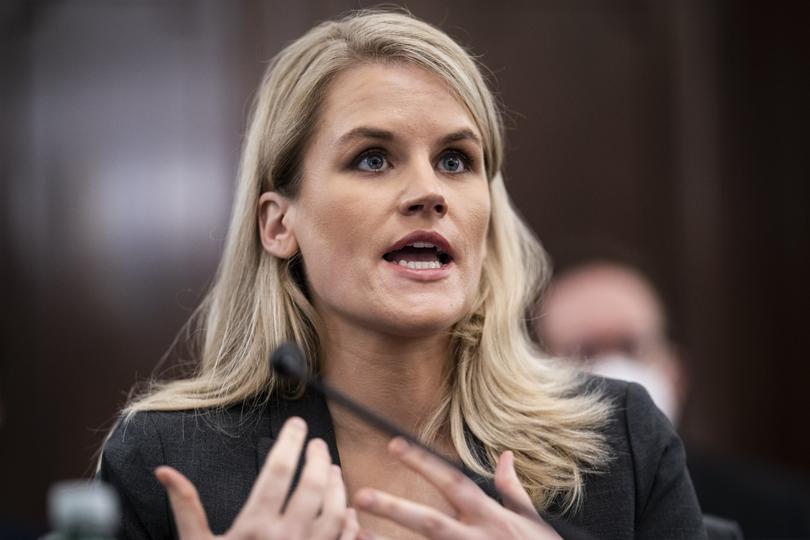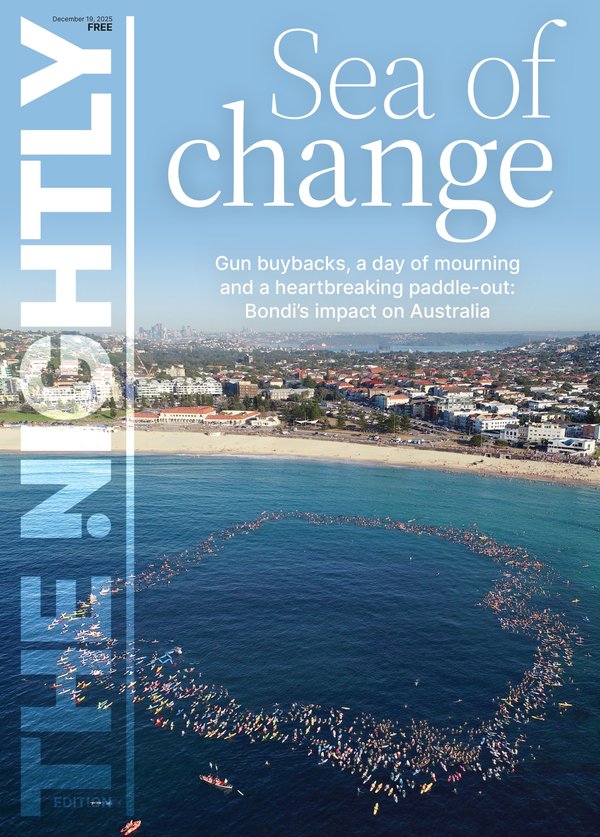Facebook whistleblower Frances Haugen says social media ban a good start but not full answer to online harms

Banning children from social media is part of the answer to creating safer online spaces but much more is needed to fix the problems, a Facebook employee-turned-whistleblower and safety campaigner says.
Frances Haugen, who turned over tens of thousands of documents from Facebook to US regulators, has been meeting ministers in Canberra this week — including staff for Communications Minister Michelle Rowland — to discuss moves to overhaul the nation’s online safety laws.
She is confident Australia will soon take a big step forward, saying the mood for change is stronger than even when she was last in the country three months ago.
Sign up to The Nightly's newsletters.
Get the first look at the digital newspaper, curated daily stories and breaking headlines delivered to your inbox.
By continuing you agree to our Terms and Privacy Policy.There is now bipartisan support for using age verification technology to keep young teenagers off social media amid fears about the health and broader social consequences.
ASIO chief Mike Burgess also pointed to swift online radicalisation of young people across a mixture of extremist ideologies as a key factor in last week’s decision to lift the terror warning level to probable.

Ms Haugen said banning under-16-year-olds was “a really good bumper sticker” but not enough on its own.
“It’s a symptom of how much society said there is something severely wrong, and we’re not willing to accept that cost any more,” she told The Nightly.
“But the reality is, we need so much more. We need comprehensive intervention because 16-year-olds-and-a-day are still vulnerable.
“The window of vulnerability really is up to 22… there’s two windows of danger: there’s when kids go through puberty, and there’s when they leave home.”
Ms Rowland said young people and their parents knew social media could be a great tool to connect with others but were “rightly concerned” about the harms it could cause.
“This Government’s intent for age assurance has been clear; we support an age limit for social media where it is effective in its purpose which is the protection — not isolation — of young people,” she said.
“We also don’t want to implement policies that create more problems than they solve — parents and young people need to be supported.”
Ms Haugen says regulators need more transparency over social platforms’ data to inform their work, and that there must be more flexibility and human oversight of the tools that deal with problems.
Ms Haugen gave the example of children playing Roblox who said they knew when “creepy adults” were trying to talk to them online because they typed faster than other children — a pattern that a human might notice but which wasn’t necessarily reflected in the algorithms looking for risk.
An Australian Internet Observatory, a collaboration between six universities, was established earlier in 2024 as a four-year project that aims to start answering some of these questions.
Language differences also posed difficulties, Ms Haugen said, with Australian slang and slurs slipping through “second-rate safety systems to (those for) people in the UK” because filters were programmed on American and British English.
But Ms Haugen sees great potential for Australia to become a regional leader in online safety, collaborating with southeast Asian countries to create a large enough customer base that big tech companies have to take notice.
Vital to this would be adopting a modern model for online safety laws that is risk-based and creates incentives for companies to comply.
“For example, a world in which the platforms knew they were going to publish data on, say, these 20 problems, is a world where social media companies in general say we have to have a plan for those problems,” Ms Haugen said.
“For every other product that’s as influential as social media, we have full institutes devoted to trying to understand those industries.
“We don’t trust the car companies about car safety; we crash the cars ourselves.”
Labor MP Sharon Claydon, newly appointed the chair of a committee examining social media’s impacts, said on Thursday it had heard many concerns about online safety issues.
The committee plans to offer recommendations in November on what the Government can do to ensure the online environment is safe and secure and protects Australia’s freedom and democracy.

